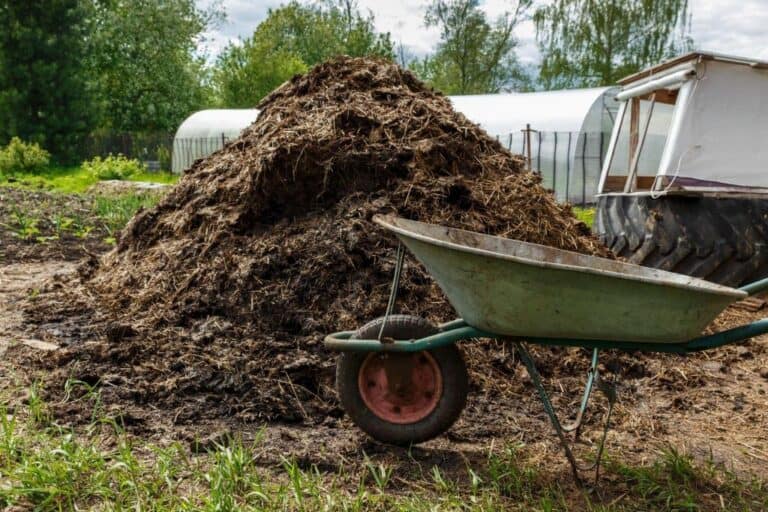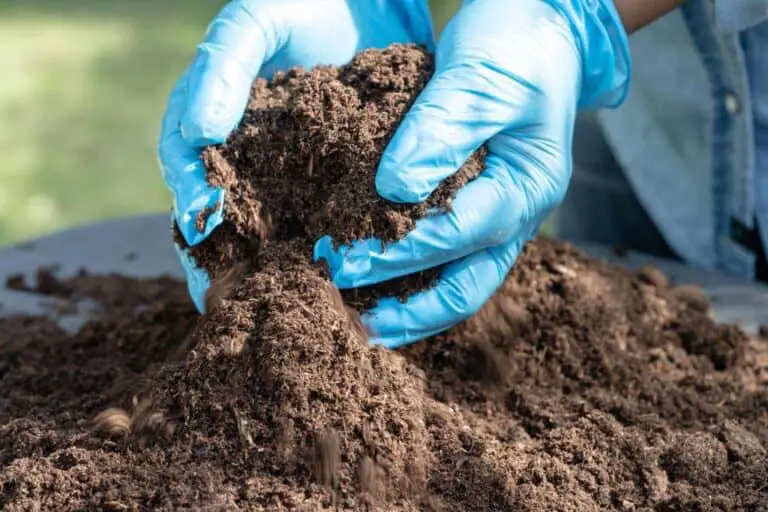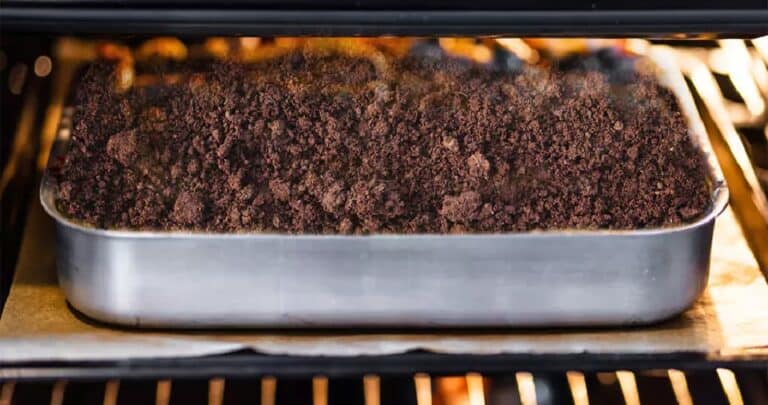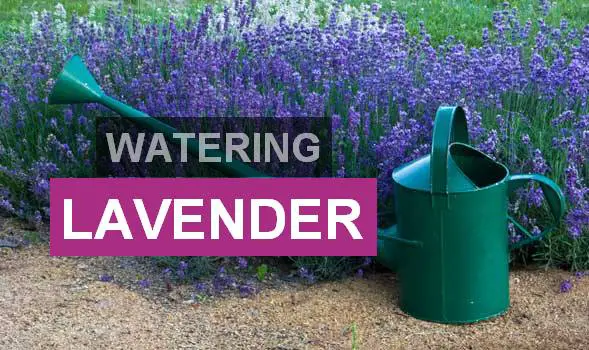Can I Use Fresh Chicken Manure in My Garden? Is It Good?
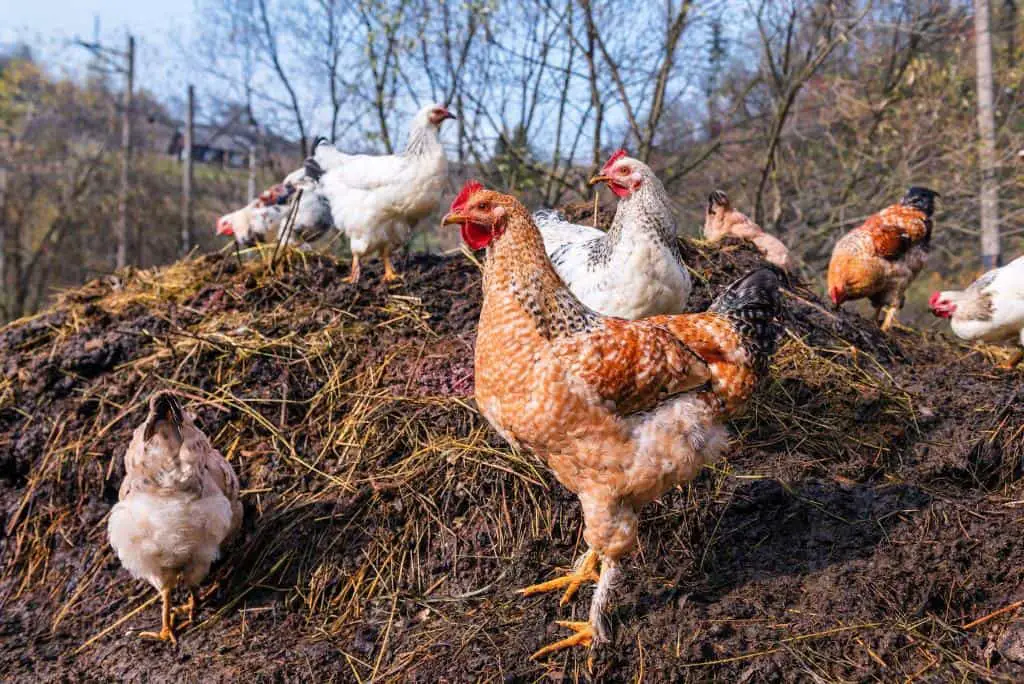
When it comes to gardening, one of the most common questions that arises is whether you can use fresh chicken manure as fertilizer. The short answer is yes, you can use it, but with some important considerations.
In this article, we’ll dive into the pros and cons of using fresh chicken manure in your garden, how to properly apply it, and what precautions you should take to ensure a healthy and thriving garden.
Chicken manure is considered a complete fertilizer as it contains thirteen of the nutrients that plants require, including nitrogen, phosphorus, and potassium. Compared to other manures, chicken manure and the associated litter are higher in nitrogen, potassium, phosphorus, and calcium and are also rich in organic matter.
The Pros of Using Fresh Chicken Manure
Fresh chicken manure is a rich source of essential nutrients that can benefit your garden in numerous ways. Here are some of the advantages of using it as a fertilizer:
- Nutrient-Rich: Chicken manure is packed with essential nutrients like nitrogen, phosphorus, and potassium, making it an excellent natural fertilizer.
- High Nitrogen Content: Chicken manure has a high nitrogen content, which is vital for plant growth, especially during the early stages.
- Improves Soil Structure: It can enhance soil structure by increasing its water-holding capacity and promoting better aeration.
- Beneficial Microorganisms: Chicken manure contains beneficial microorganisms that can help break down organic matter in the soil and make nutrients more readily available to plants.
- Cost-Effective: If you raise chickens, using their manure in your garden is a cost-effective way to recycle waste and improve soil fertility.
The Cons of Using Fresh Chicken Manure
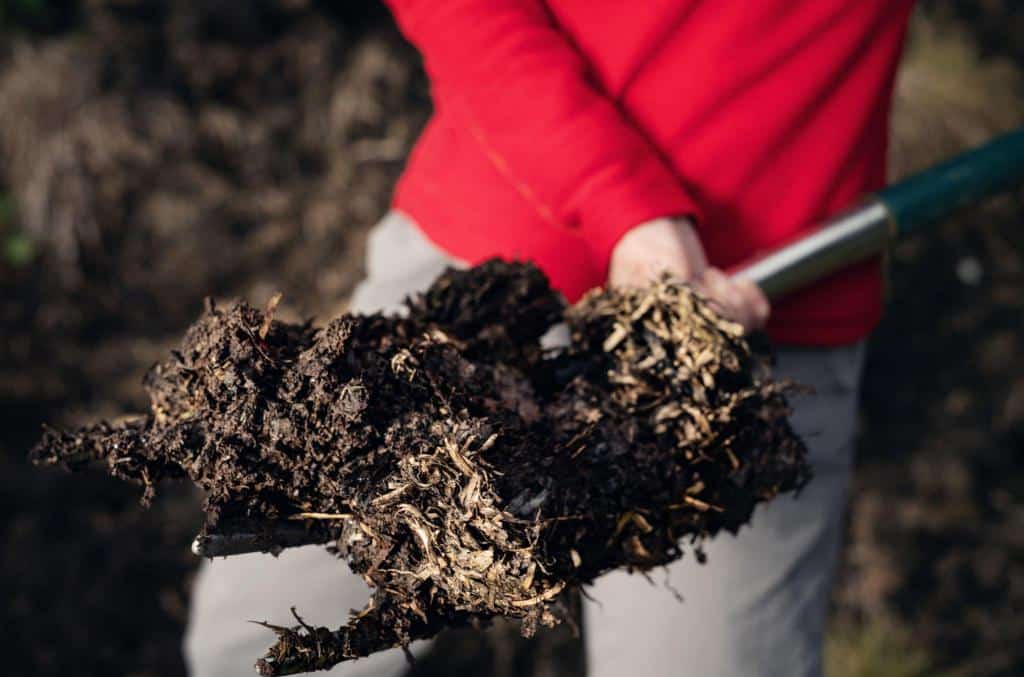
While fresh chicken manure has its benefits, it also comes with some potential drawbacks that you need to be aware of:
- High Ammonia Levels: Fresh chicken manure can have high levels of ammonia, which can burn and damage plant roots if not properly aged or composted.
- Odor and Fly Issues: It can emit a strong odor and attract flies, which can be a nuisance in your garden and surroundings.
- Risk of Pathogens: Fresh chicken manure may contain harmful pathogens such as E. coli and Salmonella, which can pose a health risk, especially for crops that are eaten raw.
- Nutrient Imbalance: If not used in moderation, chicken manure can lead to an imbalance in soil nutrients, potentially harming your plants.
Can I Use Fresh Chicken Manure in My Garden?
Chicken manure is a great fertilizer for gardens, but it needs to be properly handled and aged before use. Fresh chicken manure can burn and damage plants, so it should be composted or aged prior to use.
Composting “cools” the manure and reduces the ammonia content, making it safe to use around plants, people, and pets. Composted chicken manure provides a slow-release source of macro- and micronutrients and acts as a soil amendment.
If you use fresh chicken manure, it should be spread in the fall after all crops have been removed for the year. Fresh chicken manure is high in ammonia, which evaporates quickly. To prevent this soluble form of nitrogen from being lost, it’s advisable to till fresh manure into the soil within 12 hours of application.
Fresh or un-composted aged chicken manure can be spread in the garden at a rate of 14 pounds (6 kg.) per 100 square feet (9 sq. m.). Composted chicken manure can be spread at a rate of 44 pounds (20 kg.) per 100 square feet (9 sq. m.). As a general rule of thumb, a five-gallon bucket will hold approximately 25 pounds (11 kg.) of fresh manure or compost.
Proper Preparation and Application of Chicken Manure
To safely use fresh chicken manure in your garden, follow these steps:
1. Composting:
Composting chicken manure is essential to reduce ammonia levels and eliminate harmful pathogens. Here’s how to do it:
- Create a compost pile that includes chicken manure, other organic materials (like leaves and kitchen scraps), and a carbon source (such as straw, pine shavings, or shredded newspaper).
- Turn the compost pile regularly to ensure proper aeration and decomposition.
- Wait for at least three to six months for the compost to mature before using it in your garden.
2. Application:
Once your chicken manure is properly composted, it’s ready to be used as fertilizer. Here’s how to apply it:
- Spread a layer of composted chicken manure over your garden beds, mixing the manure into the soil to a depth of 4-6 inches.
- Apply the composted manure in the fall or early spring before planting to allow time for it to integrate into the soil.
- Use a pH test kit to monitor your soil’s pH levels. Chicken manure tends to be alkaline, so you may need to balance it with acidic amendments if necessary.
- Avoid overapplication, as excess nutrients can harm your plants. Follow recommended guidelines for your specific plants and soil conditions.
3. Safety Precautions:
- Always wear gloves and wash your hands thoroughly after handling chicken manure to reduce the risk of bacterial contamination.
- Avoid using fresh chicken manure on crops that are consumed raw, like lettuce and strawberries.
- Keep your chicken coop clean and well-maintained to minimize the presence of harmful pathogens in the manure.
Using Chicken Manure in Specific Garden Types
Different types of gardens may have varying needs when it comes to using chicken manure.
Vegetable Gardens:
In vegetable gardens, it’s essential to compost chicken manure before applying it. Use it as a soil amendment rather than a top dressing to avoid direct contact with edible parts.
Flower Gardens:
Chicken manure can be a valuable addition to flower gardens. Compost it and mix it into the soil for healthier, more vibrant blooms.
Fruit Trees and Shrubs:
When using chicken manure around fruit trees and shrubs, ensure that it’s well-composted and applied in moderation to prevent nutrient imbalances.
Container Gardens:
For container gardens, use composted chicken manure sparingly, as containers have limited soil volume and excess nutrients can lead to plant stress.
Find out: How Long Does Fresh Manure Take To Rot and Age Before Use?
Chicken Manure vs. Other Types of Fertilizers for Your Garden
When it comes to nurturing your garden, choosing the right fertilizer is a critical decision that can impact your plants’ health and your overall gardening success. Let’s explore the benefits and drawbacks of using fresh chicken manure in comparison to other popular fertilizer options like compost and synthetic fertilizers.
Fresh Chicken Manure
| Pros | Cons |
| – Rich in nutrients | – High ammonia levels |
| – High nitrogen content | – Potential odor and fly issues |
| – Improves soil structure | – Risk of harmful pathogens |
| – Contains beneficial | – Nutrient imbalance if not used in moderation |
| microorganisms |
Benefits: Fresh chicken manure is a nutrient powerhouse, packed with nitrogen, phosphorus, and potassium. It’s excellent for promoting vigorous plant growth, enhancing soil structure, and fostering beneficial microorganisms. Plus, if you’re raising chickens, it’s a cost-effective way to recycle waste.
Drawbacks: On the downside, fresh chicken manure can be problematic. Its high ammonia levels can damage plant roots, and it may emit an unpleasant odor, attracting flies. There’s also a risk of harmful pathogens, like E. coli and Salmonella, which can pose health hazards, particularly for crops that are consumed raw. Overuse can lead to nutrient imbalances in your soil.
Compost
Compost is a garden favorite for its organic, sustainable qualities. Here’s a quick look at its pros and cons:
| Pros | Cons |
| – Nutrient-rich | – Slower nutrient release |
| – Improves soil structure | – Initial setup and wait time for composting |
| – Enhances water retention | – Requires organic material input |
| – Supports beneficial | |
| microorganisms |
Benefits: Compost is a slow-release, nutrient-rich fertilizer that improves soil structure, retains moisture, and fosters beneficial microorganisms. It’s eco-friendly, using organic materials from your garden and kitchen.
Drawbacks: However, compost takes time to create, and you need a steady supply of organic matter to keep it going.
Synthetic Fertilizers
Synthetic fertilizers are convenient and readily available. Here are their advantages and disadvantages:
| Pros | Cons |
| – Quick nutrient release | – May harm soil structure and microorganisms |
| – Precise nutrient control | – Can lead to nutrient imbalances |
| – Convenient and portable | – Environmental concerns (runoff, pollution) |
Benefits: Synthetic fertilizers offer quick nutrient delivery, allowing precise control over what your plants receive. They’re convenient, easily transported, and readily available at garden centers.
Drawbacks: However, excessive use can harm soil structure and beneficial microorganisms, leading to nutrient imbalances and potential environmental issues.
Conclusion
In conclusion, yes, you can use fresh chicken manure in your garden, but it requires proper preparation and caution. Composting is key to reducing ammonia levels and eliminating pathogens, making it safe and effective for your plants.
Remember to follow safety guidelines, avoid overapplication, and consider the specific needs of your garden type. With the right approach, chicken manure can be a valuable and sustainable addition to your gardening routine, promoting healthy, thriving plants and a more bountiful harvest.
FAQs on Garden Fertilization With Poultry Waste
How long should I wait before planting after using fresh chicken manure?
It’s generally recommended to wait at least 3 to 6 months after applying fresh chicken manure before planting. This allows the manure to compost, reducing the risk of burning your plants and ensuring safer nutrient levels for your crops.
Can I use chicken manure from backyard chickens in my garden?
Yes, you can use chicken manure from backyard chickens in your garden. However, it’s crucial to manage it properly to avoid contamination. Composting the manure or allowing it to age before application is advised.
Is there a recommended ratio of chicken manure to soil for garden beds?
A typical guideline is to use chicken manure as part of your overall compost mix, aiming for around 5-10% chicken manure content. Adjust this ratio based on your specific soil and plant needs.
What are the benefits of aged chicken manure vs. fresh chicken manure in gardening?
Aged chicken manure has reduced ammonia levels, lower risk of plant burning, and improved nutrient availability compared to fresh manure. It’s generally safer and more beneficial for garden use.
Are there any vegetables or plants that should not be grown with fresh chicken manure?
It’s best to avoid using fresh chicken manure on root crops like carrots and potatoes, as they may develop an undesirable flavor. Additionally, delicate or young seedlings can be sensitive to the high nitrogen content in fresh chicken manure.
Is fresh chicken manure safe for my garden, or should I always compost it first?
Composting fresh chicken manure is recommended to reduce the risk of burning your plants with high ammonia levels and to ensure better nutrient availability.
Can I mix fresh chicken manure with other organic materials in my compost pile?
Yes, blending fresh chicken manure with other organic materials like straw or leaves can enhance the composting process and balance nutrient ratios.
What are some signs that I may be overusing fresh chicken manure in my garden?
Signs of overuse include yellowing or burning of plant leaves, excessive plant growth, and soil imbalances. Soil testing can help you assess nutrient levels.

